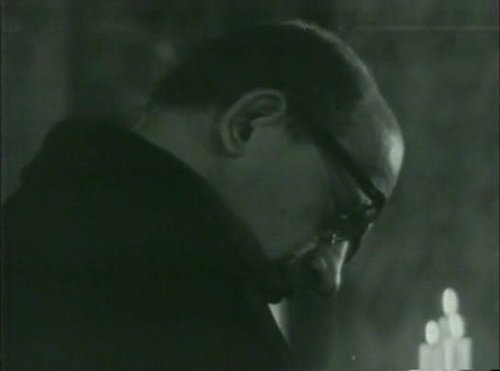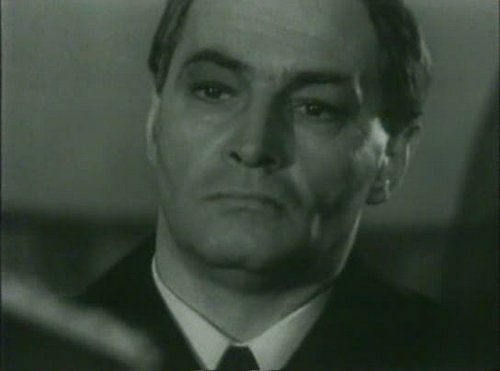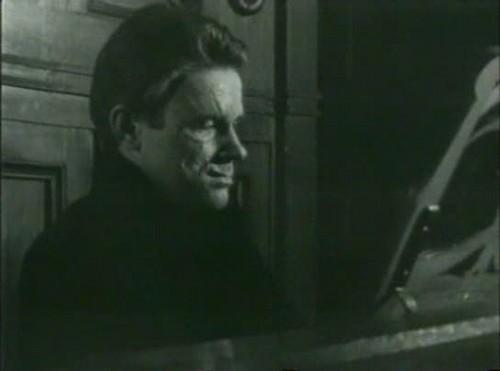
Alexander asked for some comments on Seventeen Moments of Spring.
I’ve only watched the first four episodes so far, but our slow going is not because we don’t like the film. We just don’t get in as much movie-watching at this time of summer.
I have been meaning to say something about this part in episode 3, though, though wasn’t sure just how to say it without being misunderstood. And it may be that I misunderstand, too.

The English subtitles are as follows:
Looking at Werner who was standing near the coffin, Stirlitz only now realized how the two brothers resembled each other. Karl’s younger brother, Werner, didn’t know that Stirlitz had got him released from the camp where he had been thrown on a denunciation.
Whoa! A denunciation? I thought it was the Russians of that time could get someone thrown into a prison camp on a denunciation. Germans and Russians both used informers, but I thought this system of easy denunciation was a unique feature of certain episodes in some communist regimes. Here are some possibilities I can think of for why this film series has the Germans doing it.
-
The Russian filmmakers are projecting their own system on the Germans, probably not realizing it.
-
The distinction I’m making between informers and denunciations is not a real distinction.
-
The translation into English is all garbled. (I certainly can’t follow any of the Russian I hear in this part.)
-
The Germans really did denunciations, too, and I just didn’t notice it in any of my reading.
-
Other.
If choice #1 is correct, it wouldn’t be at all surprising. That sort of thing happens all the time, and probably goes back at least as far as Aristophanes. American filmmakers are especially bad at projecting their own sensibilities on everyone else, which is one reason I can’t stand to watch many American films. When I see it in American films I’m irritated. But when I see it in Russian films, I’m amused.
For example, I was once amused to see a show on RTR Planeta in which the American bad guys, in a plot hatched in the White House, poisoned one of the Russians. And I thought, no, no, no, that’s not right! Russians are the poisoners. It’s a common theme in Russian movies of all kinds, and in real life (see Alexander Litvinenko). Russians even joke about it. It’s not that Americans haven’t been involved in their own nasty assassination plots (see, for example, what happened to Ngo Dinh Diem) but poisoning is just not a standard part of the American repertoire. It’s not the American MO. But it was amusing to see Russians projecting that technique onto Americans.
Maybe something like that is happening with denunciations in Seventeen Instances, too. It doesn’t really matter to the plot, but this blog is mainly for superficial remarks, so that gives me license to talk about it.
